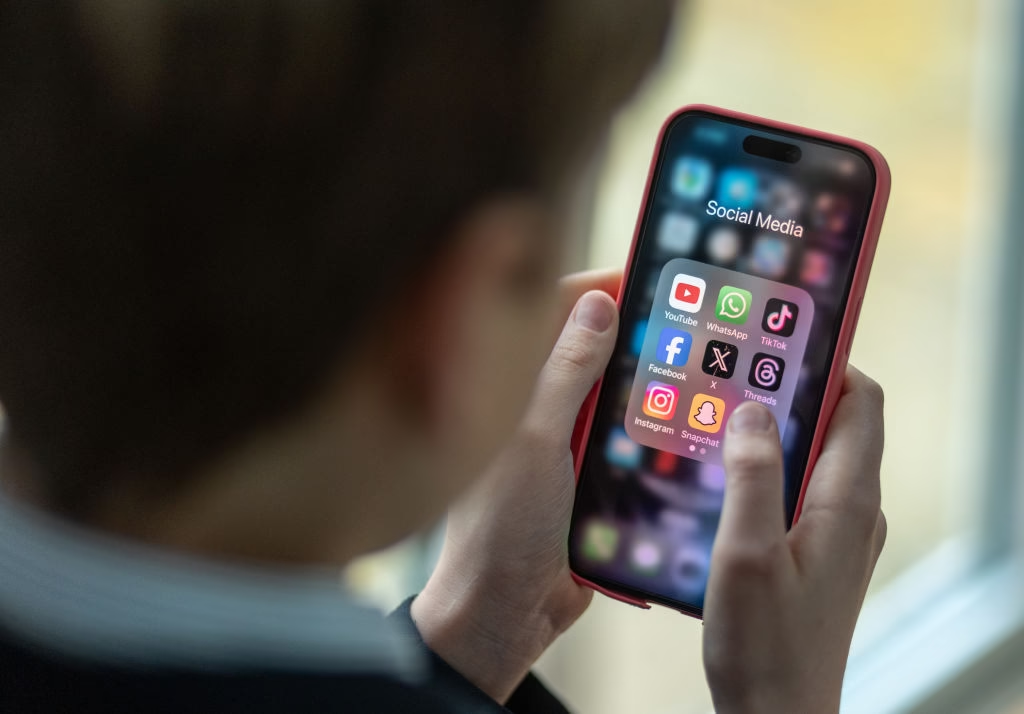Australia to Ban Social Media for 16-Year-Olds: A Bold Move to Protect Teens Online
In a groundbreaking decision aimed at safeguarding younger generations, Australia is set to ban 16-year-olds from accessing social media platforms. This move, if implemented, will make Australia one of the strictest nations in regulating teen access to digital spaces, igniting discussions about online safety, mental health, and digital freedoms.
What’s Behind the Ban?
The Australian government has expressed growing concerns about the adverse effects of social media on teenagers. From cyberbullying and mental health challenges to the exposure of inappropriate content, platforms like Instagram, TikTok, Snapchat, and Facebook have come under scrutiny.
Studies have revealed alarming rates of anxiety, depression, and self-esteem issues among teens, often linked to the curated and competitive nature of social media. By banning 16-year-olds, the government aims to mitigate these risks and promote a healthier developmental environment.
How Will the Ban Work?
Details about the enforcement mechanisms are still unfolding, but here’s what is known:
- Mandatory Age Verification
Social media companies may be required to implement stricter age verification measures, such as ID checks or third-party verification systems. - Fines for Non-Compliance
Platforms that fail to comply with the ban could face hefty fines, reinforcing the seriousness of the government’s stance. - Parental Oversight Encouraged
Parents may play a pivotal role in enforcing these restrictions, with potential penalties for guardians who allow underage access.
The Ban’s Supporters and Critics
Supporters Say:
- Protecting Mental Health: Advocates argue that reducing social media exposure can lower rates of anxiety, depression, and cyberbullying.
- Academic Focus: Limiting screen time could encourage teens to focus more on education and extracurricular activities.
- Digital Safety: Shielding younger users from predators and harmful content is seen as a necessary step.
Critics Respond:
- Freedom of Expression: Critics contend that the ban infringes on young people’s rights to express themselves and connect with peers.
- Implementation Challenges: Enforcing the ban on global platforms may prove difficult without international cooperation.
- Social Isolation Risks: For many teens, social media serves as a vital social lifeline, and the ban could lead to feelings of disconnection.
Potential Global Implications
Australia’s move could set a precedent for other countries grappling with the challenges of social media and teen welfare. Nations like the United States, the United Kingdom, and Canada are already exploring stricter regulations on platforms. If Australia’s ban proves successful, it could inspire similar initiatives worldwide.
What Does This Mean for Teens and Families?
The ban will undoubtedly reshape how teens interact with technology. Here’s what families need to consider:
- Alternative Activities: Encouraging hobbies, sports, and face-to-face interactions could help fill the gap left by social media.
- Open Communication: Parents should discuss the reasons behind the ban and address any concerns teens may have about the change.
- Digital Literacy Education: Teaching teens about online safety, cyber ethics, and the impact of social media is more crucial than ever.
The Broader Conversation on Social Media and Teens
The debate over the ban underscores a larger conversation about the role of social media in young people’s lives. While platforms have become indispensable for connection and creativity, they also pose undeniable risks. Striking a balance between protection and freedom remains a complex challenge.
Conclusion
Australia’s decision to ban 16-year-olds from social media is a bold and controversial step in addressing the challenges of the digital age. While its success will depend on effective implementation and public cooperation, the move has already sparked important discussions about how society can better protect and support its younger members in an increasingly digital world.
Whether viewed as a necessary safeguard or an overreach, this policy marks a pivotal moment in the global dialogue on social media regulation. For Australians, it’s a chance to reevaluate the role technology plays in shaping the minds and lives of their children.



